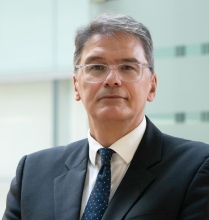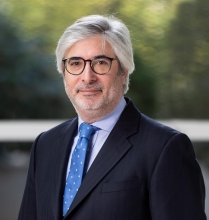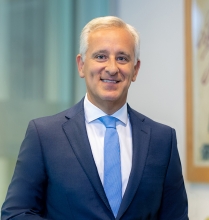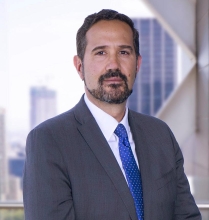International Arbitration Newsletter - June 2019 | Regional Overview: Europe
The most relevant European updates from the global International Arbitration and ADR practice group at Garrigues.
European Union
EC seeks mandate to negotiate the modernisation of “outdated” ECT
The European Commission has announced it had adopted a proposal for a decision from the Council of the European Union to authorise negotiations to modernise the “outdated” investment protection provisions in the Energy Charter Treaty – with the aim of minimising the number of investor claims over legitimate public policy measures.
The EC has published the proposal and an annex setting out draft negotiating objectives.
According to the Commission, most of the ECT’s provisions have not been revised since the 1990s. This is “particularly problematic” in the context of the treaty’s investment protection provisions, which it says “do not correspond to modern standards” as reflected in the EU’s “reformed approach” to investment protection in recent investment agreements with third countries such as Canada, Singapore, Vietnam and Mexico.
Hungary
Hungary applies to annul ICSID award in food voucher services treaty claim
Hungary has applied to annul a €73 million ICSID award that upheld claims by French food voucher services company Sodexo Pass International under an intra-EU bilateral investment treaty and that had addressed both the European Court of Justice´s ruling in Achmea and the EU Commission’s intervention as amicus curiae.
The arbitration arose from reforms adopted in 2011 that introduced a state-run system for the provision of pre-paid vouchers for employee fringe benefits. Sodexo argued that the reforms essentially excluded foreign providers of voucher services from the market as state-run providers enjoyed more advantageous tax rates.
In January 2019, the tribunal found that the reforms amounted to an indirect expropriation of Sodexo’s investment, in breach of the France-Hungary bilateral investment treaty.
The state had objected that the tribunal lacked jurisdiction as a result of the European Court of Justice’s March 2018 ruling in Achmea that investor-state arbitration provisions in an intra-EU bilateral investment treaty were incompatible with EU law.
The tribunal rejected this argument in spite of an amicus curiae submission by the European Commission in support of Hungary’s position.
Italy
Swedish court stays enforcement of ECT awards against Italy
The Svea Court of Appeal has stayed the enforcement of two Energy Charter Treaty (ECT”) awards against Italy worth a combined €20 million in favour of Dutch entity CEF Energia and Denmark's Athena Investments (formerly known as Greentech) and Luxembourg fund Novenergia.
The awards, issued by tribunals at the Stockholm Chamber of Commerce, partly upheld claims brought over Italy’s reforms to its incentive regime for renewable energy.
In the CEF Energia award the tribunal found that it lacked jurisdiction over most of the disputed measures as they fell within a carve-out in the ECT for taxation measures. However, the tribunal also concluded that one of the reforms breached the ECT’s fair and equitable treatment standard in respect of one of CEF Energia’s three photovoltaic plants in Italy. It awarded the investor €9.6 million along with €1 million in costs.
In the Athena case, the tribunal upheld its jurisdiction in spite of Achmea and rejected certain claims as falling within the tax carve-out. It awarded €7.4 million to Athena and €4.5 million to two Novenergia entities, along with costs and expenses of €2 million and interest.
Spain
Spain hit by new award in ECT claim
Spain has been ordered to pay €42 million to Luxembourgish fund 9Ren, a subsidiary of US private equity firm First Reserve, in an ICSID award after holding the state liable for changes to its subsidy regime for renewable energy.
The award upheld claims by 9Ren that the Spanish energy reforms violated the Energy Charter Treaty’s (ECT´s) fair and equitable treatment standard and rejected Spain’s arguments that the ECT did not apply to intra-EU investment disputes as a result of the European Court of Justice’s decision in Achmea.
The state was ordered to pay interest at a rate equivalent to a five-year Spanish government bond yield compounded annually from June 2014 until the award was satisfied, plus almost US$6 million towards the investor’s legal costs and the costs of the arbitration.
The Luxembourgish company says it invested in reliance on incentive schemes introduced in 2007 and 2008, which included a guarantee of a premium feed-in tariff and related benefits, and a “grandfather clause” that said those benefits would be irrevocable with respect to renewables facilities that were registered by a certain deadline. However, a series of regulatory measures enacted between 2010 and 2014 dismantled that regime, introducing a new framework that required renewable investors to sell electricity on the wholesale market, with any sales supplemented by subsidies to cover the additional cost of generating renewable energy over conventional sources.
9Ren filed its ICSID claim in 2015, arguing that the later incentives were far less valuable, and the original measures gave rise to reasonable and legitimate expectations that Spain would maintain that regime.
Spain sees US Court accepting enforcement of largest solar award
Two Dutch subsidiaries of New York-listed NextEra Energy have applied to the US District Court for the District of Columbia to enforce an ICSID award worth €290 million against Spain – the largest award issued so far in the numerous cases the state faces over reforms to its renewable energy sector.
The award which is sought to be enforced is a final award on damages issued together with a decision on jurisdiction, liability and principles of quantum and based its damages calculation on a valuation of assets and a reasonable rate of return, ordering Spain to pay €290 million plus pre- and post-award interest, as well as US$4.1 million towards NextEra’s legal costs. The claimants were awarded a further €1 million to cover one-third of their costs in the arbitration.
The claimants filed their ICSID claim in 2014. They argued they had legitimate expectations that the former system would continue based on the specific terms of the regulatory framework enacted in 2007, as well as ministerial resolutions and specific statements or representations made to the company by Spanish officials.
The tribunal concluded that the 2007 regulatory framework alone could not have been the basis for such an expectation – as that framework was based on legislation and legislation can be changed. However, the tribunal found that assurances made in writing by Spanish officials and the broader context of the investment environment did give rise to a legitimate expectation that the regime would not be changed in such a way that would undermine the security and viability of the claimants’ investment.
UKRAINE
UNCITRAL panel hears dispute between Gazprom and Ukraine
An UNCITRAL tribunal will hear Russian state-owned gas producer Gazprom’s investment treaty claim against Ukraine brought under the 1998 Russia-Ukraine bilateral investment treaty over a US$6 billion fine imposed by the country’s competition authorities.
The case, which is administered by the Permanent Court of Arbitration relates to an “unjustified and unfair” decision in 2016 by Ukraine’s Antimonopoly Committee, which found that Gazprom had abused its monopoly position as the only regional user of gas transit services by reducing the quantity of gas passing through Ukraine.
The committee ordered Gazprom to pay a US$3 billion fine, which was later increased to around US$6 billion by a Kiev court to incorporate late payment penalties. The Supreme Court of Ukraine dismissed Gazprom’s appeal against the fine in 2017.
Ukrainian authorities subsequently sought to collect the sum by seizing the bank accounts of Gazprom’s representative office in Kiev as well as its shares in a gas transit venture and other holdings. According to Gazprom’s last annual report, its shares in the venture, having an estimated value of US$1.7 million, were sold in a forced sale auction last August.
UNITED KINGDOM
UK Defence Ministry refuses to settle ICC award on Iran sanctions
The UK´s Ministry of Defence (“MoD”) has refused a request by the Foreign & Commonwealth Office to settle £400 million to Iran to satisfy an 18-year old ICC award.
The ICC dispute relates to the MoD´s entity in question, International Military Services (IMS) refusal to reimburse Iran for advances paid on arms purchases worth £650 million that were cancelled in the wake of the Iranian Revolution in 1979.
IMS (formerly known as Millbank Technical Services) had contracted to deliver 1,500 Chieftain tanks and 71 armoured recovery vehicles, for which Modsaf paid around £300 million in advance. At the time of the termination, IMS had delivered just 185 of the tanks and 21 of the vehicles.
Modsaf requested the reimbursement of £230 million it said it was owed but IMS refused, claiming the state in fact owed it £15 million. IMS went on to sell the remainder of the tanks to the government of Saddam Hussein in Iraq, who used them in the 1980-1988 Iraq-Iran war.
Modsaf filed the ICC claim against IMS and the MoD in 1990, giving rise to an 11-year arbitration.
The MoD has refused the Foreign Office’s request to make the payment, arguing the money would finance the Iranian Revolutionary Guards Corps, which was recently designated a terrorist organisation by the US. The paper says successive UK defence secretaries have opposed making the payment.
It is said that EU and UN sanctions against Iran prevent the UK from paying the debt.
UK Appeal court lifts ban to Third Party Funding of an ICSID claim
The Court of Appeal in London has overturned a ruling that prevented UK company Koza Ltd from providing funding worth £3 million to finance an ICSID claim brought by its alleged affiliate, Ipek Investments Limited (IIL) for an ICSID claim against Turkey – concluding that it was for the company’s board, not the court, to determine whether the claim was likely to succeed.
The appeal court said a deputy judge had been wrong to declare that it was not in “the ordinary and proper course of business” for Koza Ltd to provide finance and nothing prevented Koza Ltd from funding the efforts of its sole director, Turkish businessman Hamdi Akin Ipek, to resist extradition to Turkey on charges of terrorism.
Koza Ltd won an injunction from the High Court in December 2016 which blocked an attempt by Turkish trustees to remove Ipek as its director. To comply with that injunction, Koza Ltd gave an undertaking not to dispose of any of its funds “other than in the ordinary and proper course of business” until the litigation over control of the UK company is resolved. The dispute is pending before the UK Supreme Court, which held a hearing in March this year.
The deputy judge also pointed to the absence of any evidence that IIL had other funding available – noting that it had not been disclosed whether IIL had explored obtaining litigation funding for the claim.
Contacts




-
+52 55 1102 3570
-
+57 601 326 69 99

-
+56 2 29419000



